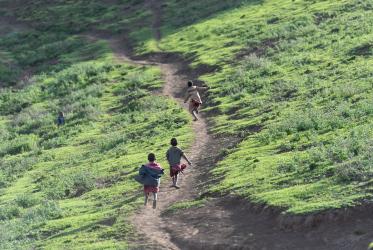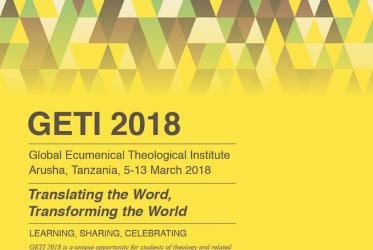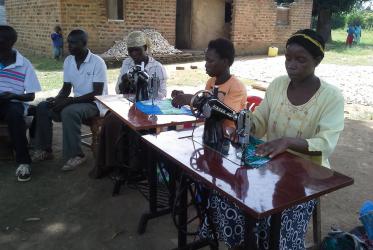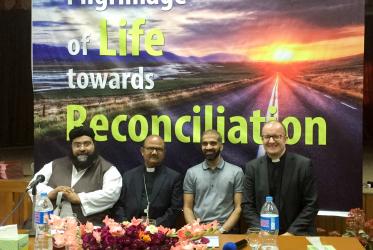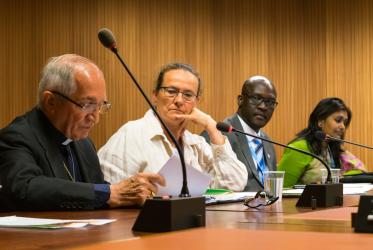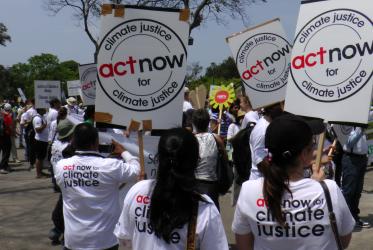Displaying 1 - 20 of 24
World mourns loss of Archbishop Desmond Tutu
30 December 2021
CCIA meets in Brisbane with focus on Pacific regional priorities
19 February 2020
Tveit: “unity and mission belong together"
15 October 2017
G20 summit: call to pray for peace in Hamburg
07 July 2017
Church of Pakistan hosts Muslims, Christians
23 March 2016
Consultation considers right to food in context of climate change
15 December 2015
Churches' “prophetic voice” will be busy in 2015
18 June 2015




